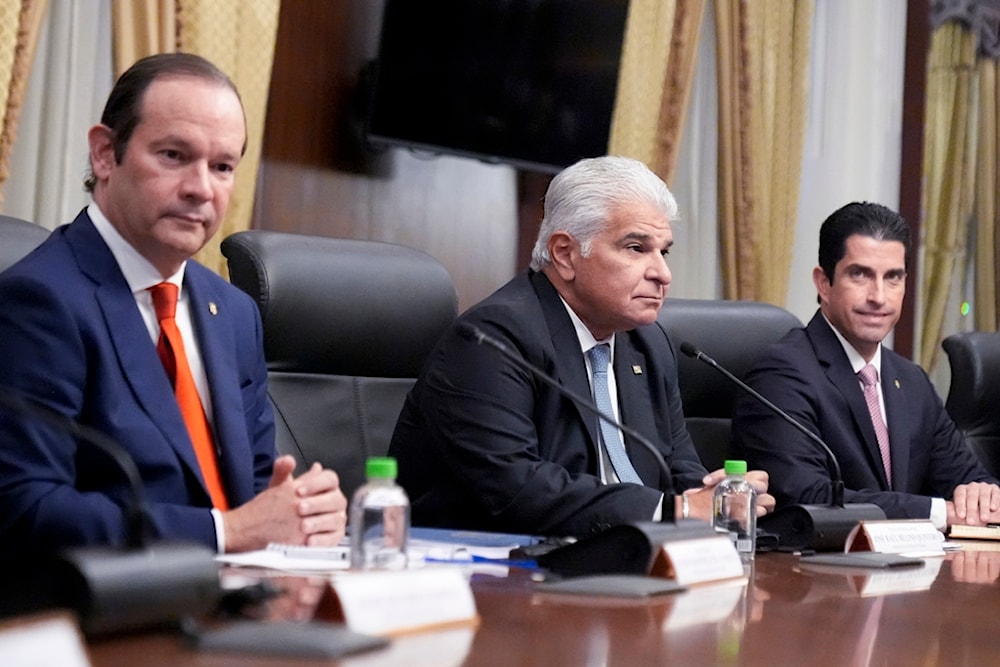US threatens Panama over alleged 'China influence' in canal operations
Washington's accusations over Chinese influence in the Panama Canal have resurfaced decades after the US handed over control of the canal to Panama under the Torrijos–Carter Treaties.
-

Panama's President Jose Mulino, center, and Foreign Minister Javier Martinez-Acha, left, meet with US Secretary of State Marco Rubio at the presidential palace in Panama City, on Sunday, February 2, 2025. (AP)
The United States has raised accusations over an alleged Chinese involvement in the Panama Canal, warning that changes must be made or it will take action, according to a statement from the State Department. US Secretary of State Marco Rubio conveyed the message to Panamanian President Jose Raul Mulino during discussions on Sunday, that President Donald Trump views the so-called Beijing's influence as a threat to the vital waterway.
The Panamanian government has firmly pushed back against these accusations, maintaining that it retains full control over the canal and treats all shipping interests equitably.
While the canal itself is operated by Panama, the ports at either end are managed by CK Hutchinson, a publicly listed Hong Kong-based company. Additionally, other port facilities in the vicinity are run by businesses from the US, Singapore, and Taiwan.
The US concerns stem from growing Chinese cooperation with Latin American countries, with Washington increasingly wary of Beijing's role in critical global trade infrastructure. The issue has gained momentum in Congress, with a bipartisan group of US lawmakers warning that China's access to the Panama Canal's key ports could undermine US strategic interests.
Senator Ted Cruz has openly criticized Panama for allowing Chinese companies to operate ports, calling it a "national security risk".
Panama rejects US assertions
Following his meeting with Rubio, Mulino reaffirmed that Panama's sovereignty over the canal was not up for debate. His government has also ordered an audit of CK Hutchinson Holdings to confirm that the company remains in compliance with its concession agreements, a move likely aimed at addressing concerns about alleged Chinese influence.
However, the Trump administration's pressure campaign does not appear limited to canal operations. Mulino stated that while he would not discuss canal sovereignty, he was open to assisting the US with migrant repatriation efforts—but only if the US paid for it.
Read more: Following his inauguration, Panama, Mexico vow to fight Trump schemes
Washington's accusations over Chinese influence in the Panama Canal have resurfaced decades after the US handed over control of the canal to Panama under the Torrijos–Carter Treaties.
Some US officials now claim that Panama's dealings with Chinese entities may violate treaty obligations, raising questions over whether the US could intervene to reclaim control of the canal.
Meanwhile, Panama insists that its canal operations remain independent and that shipping access is managed fairly. The Panamanian government has repeatedly denied that it has ceded operational control to China, instead arguing that foreign companies—including American firms—run various ports near the waterway.

 3 Min Read
3 Min Read








